Too much debt can be an overwhelming and stressful experience. But there is hope, and understanding the different types of personal bankruptcies can help you make informed decisions about your financial future. This article will provide an overview of the two main types of personal bankruptcies, Chapter 7 and Chapter 13, and explain their respective processes.
Types of Personal Bankruptcies Explained
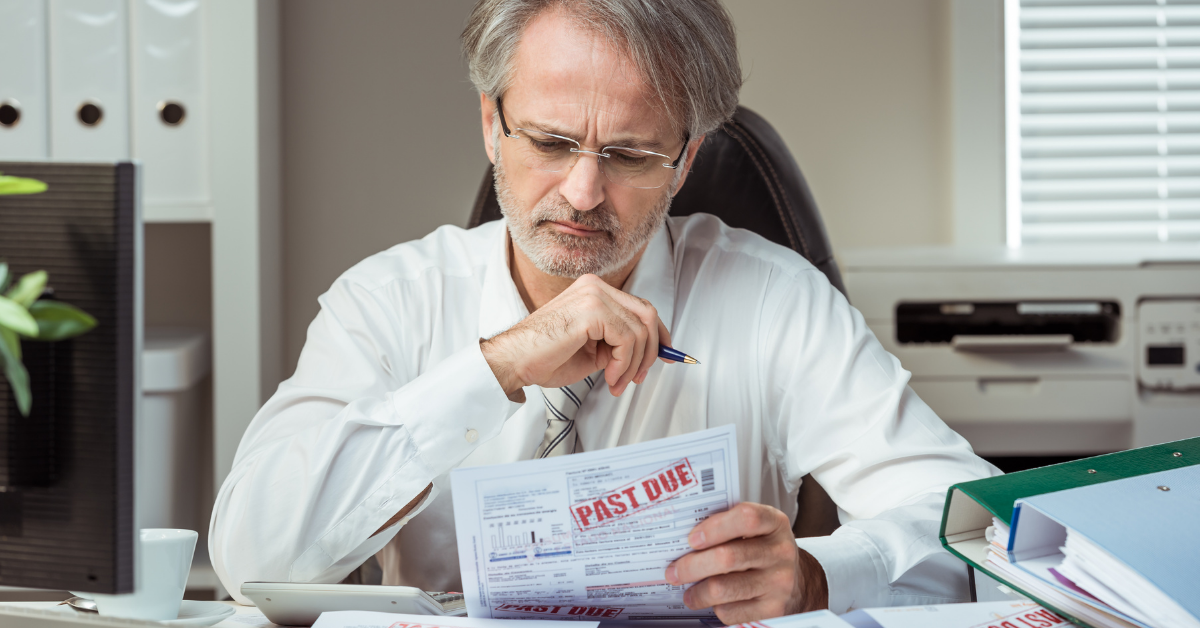
Personal bankruptcy generally is broken down into 2 main chapters:
- Chapter 7 Bankruptcy
- Chapter 13 Bankruptcy
Each chapter has its own unique rule sets, pros, and cons. We’re going to dive in and explain how each one works.
Chapter 7 Bankruptcy
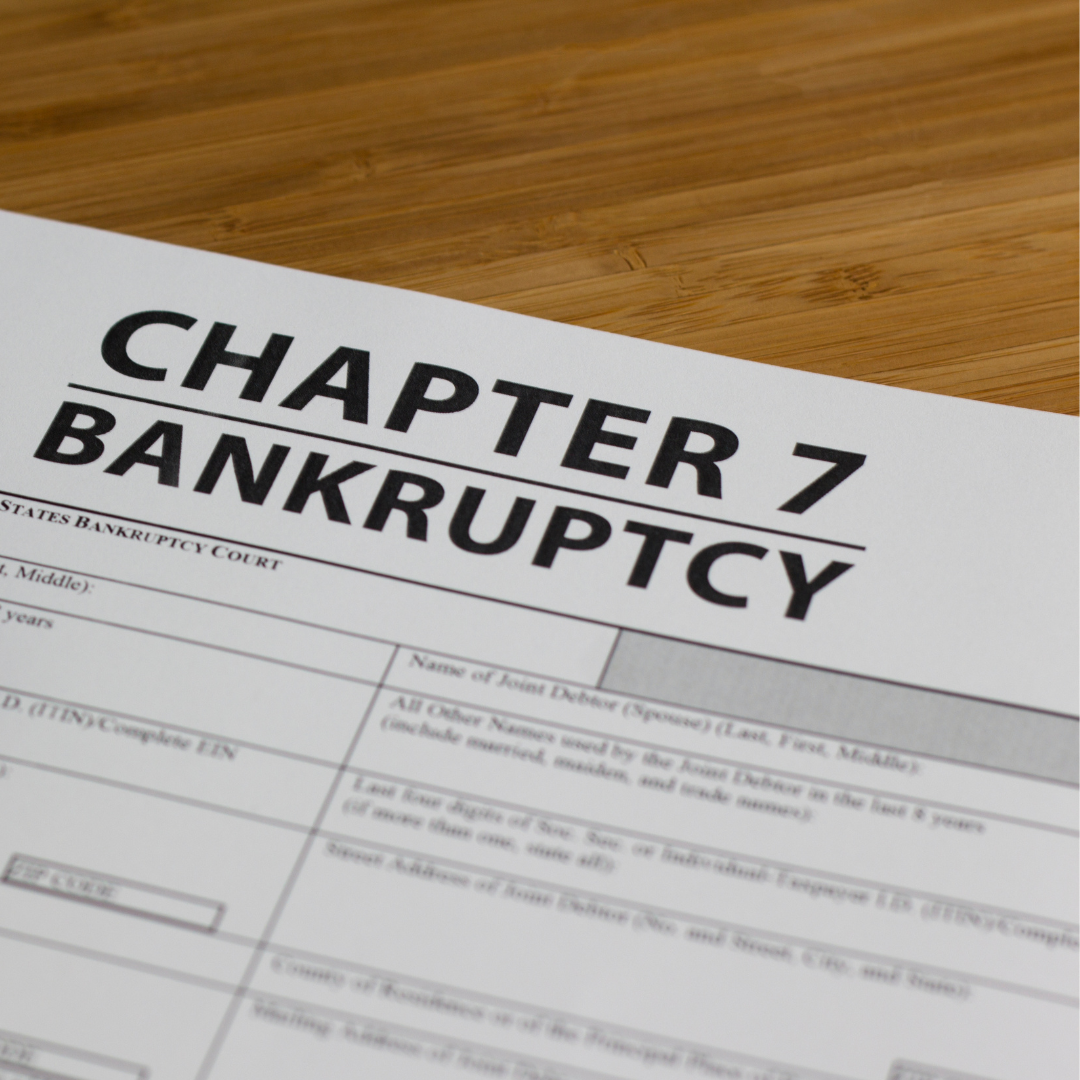
Chapter 7 bankruptcy is a type of bankruptcy filing that allows individuals to eliminate most of their unsecured debts and get a fresh start financially. It’s also known as liquidation bankruptcy because it involves the sale of some of the debtor’s assets.
In this legal process, a court-appointed trustee will liquidate certain assets to pay off your creditors. However, many types of property are exempt from liquidation, typically your primary residence, some personal property, and most retirement accounts. The trustee will sell any non-exempt assets and distribute the proceeds to your creditors.
At the end of the bankruptcy process, most of your unsecured debt will be discharged, meaning you will no longer be legally obligated to pay those debts. However, some debts, such as student loans and taxes, are not normally dischargeable under Chapter 7 bankruptcy.
Chapter 7 bankruptcy can help individuals get rid of unsecured debt such as:
- Credit card debt
- Personal loans
- Medical bills
Chapter 13 Bankruptcy
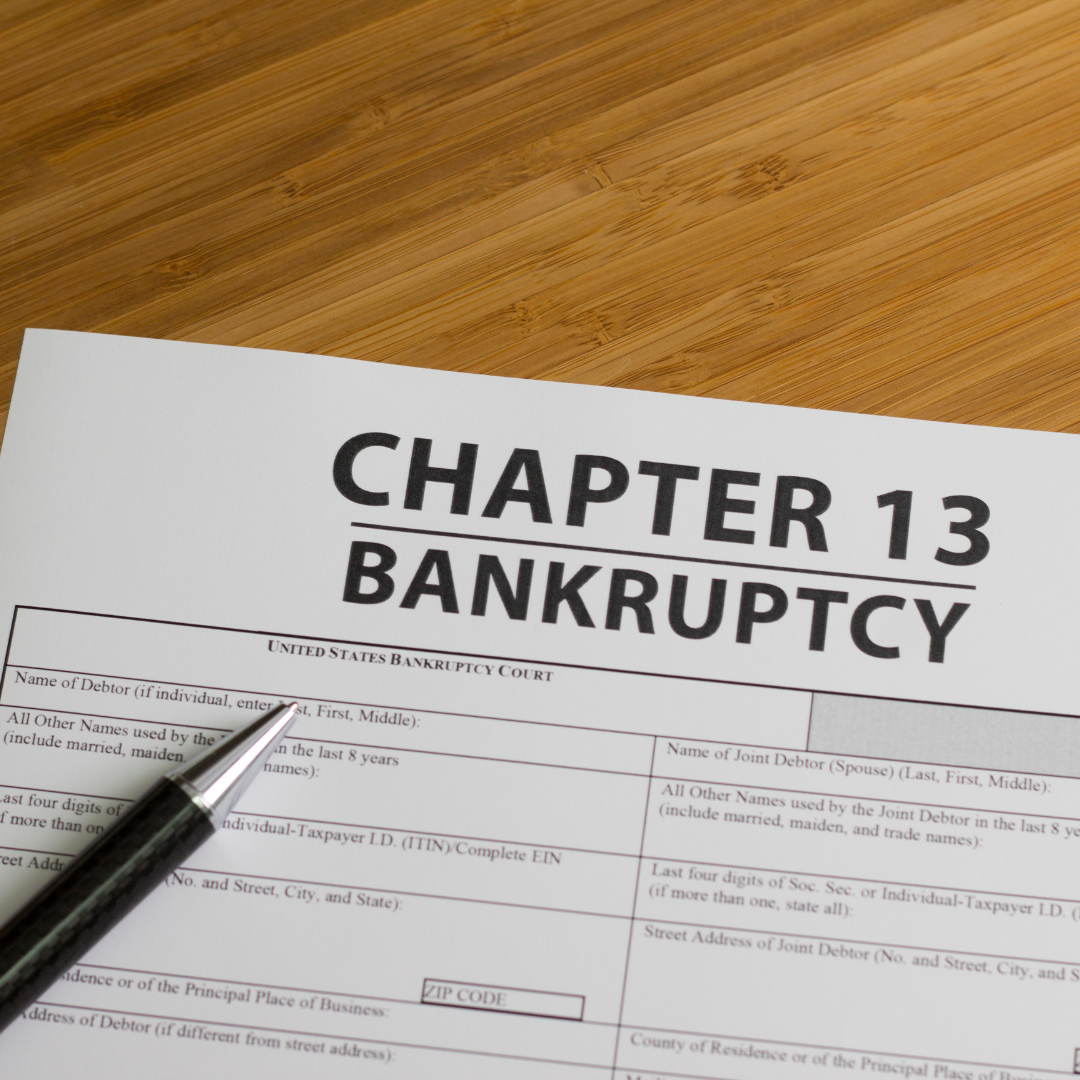
Chapter 13 bankruptcy is a type of bankruptcy filing that allows individuals to reorganize their debts and create a repayment plan. It’s also known as a wage earner’s plan, and it’s designed for people who have a reliable source of income but are struggling to meet their financial obligations.
Chapter 13 can help stop foreclosure or repossession and help debtors catch up on missed payments. It can also protect co-signers on certain debts.
Alternatives to Bankruptcy
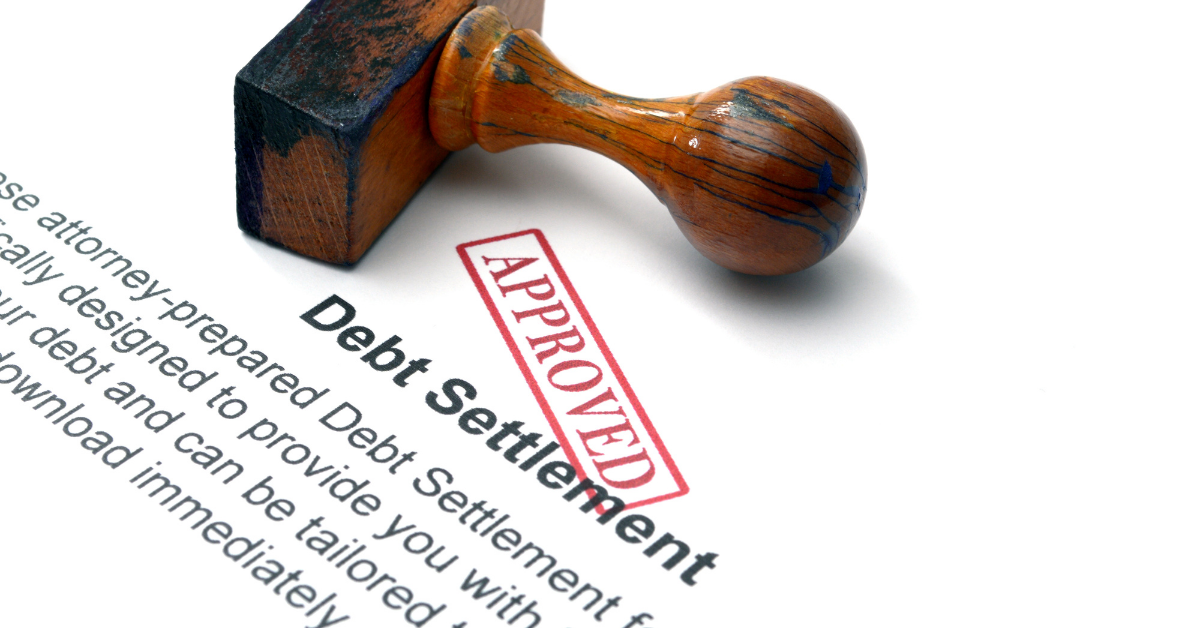
While bankruptcy can provide a fresh financial start, it’s essential to consider alternatives before deciding to file. Some potential alternatives to bankruptcy include:
Debt Settlement
Debt settlement involves negotiating with your creditors to accept a lower amount than what you owe. This can be done on your own or through a debt settlement company. While this option can help you reduce your overall debt, it may negatively impact your credit score and may have tax implications.
Credit Counseling
Credit counseling is a service provided by nonprofit organizations that help individuals create a budget and develop a plan to manage their debts. They may also negotiate with creditors on your behalf to lower interest rates or waive fees. This option can be a helpful first step for those struggling with financial difficulties but may not be sufficient for those with overwhelming debt or facing legal actions from creditors.
How LSS Law Can Help
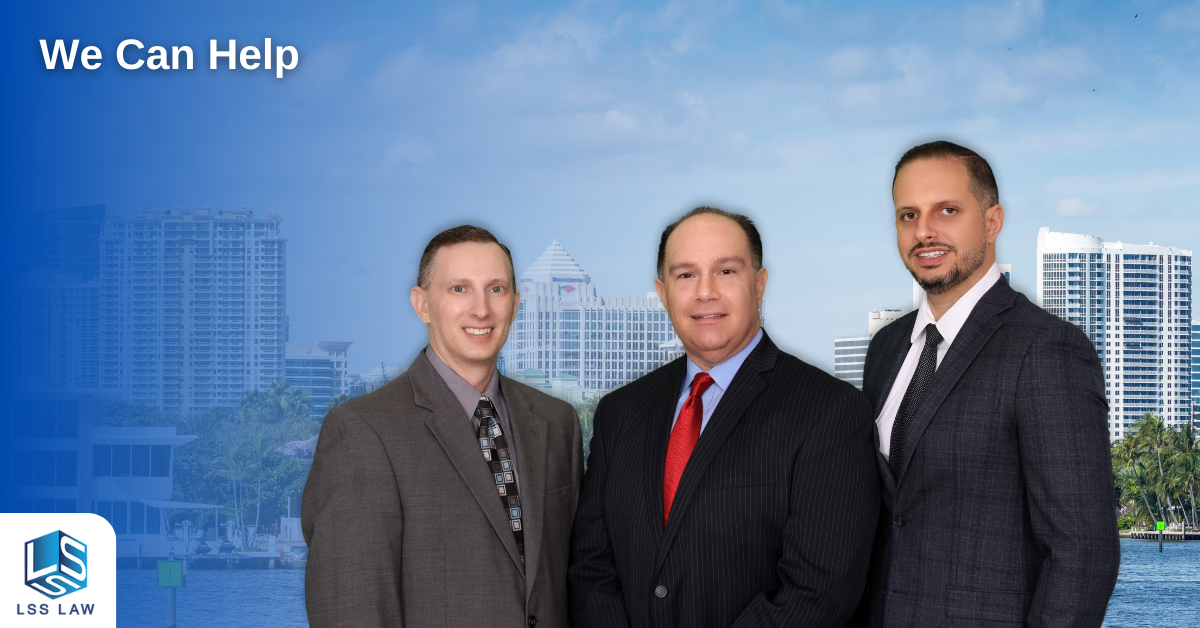
Navigating the complexities of bankruptcy can be challenging, but working with an experienced bankruptcy attorney can make the process smoother and more manageable. LSS Law is a South Florida bankruptcy law firm dedicated to helping individuals overcome debt through expert bankruptcy strategy and planning.
Our knowledgeable attorneys can help you understand your options, determine the best course of action for your unique financial situation, and guide you through the bankruptcy process. We are committed to helping our clients achieve a brighter financial future and understand that bankruptcy is a useful financial tool, and not the end of the world.
To learn more about personal bankruptcy options and how LSS Law can assist you, contact us at info@lss.law or visit https://lss.law/contact-us to schedule a no-cost Bankruptcy Strategy Session for personal bankruptcy at our Fort Lauderdale or Miami locations, or via Zoom.
The Chapter 7 Bankruptcy Process in Florida

Means Test and Credit Counseling
To qualify for Chapter 7 bankruptcy in Florida, you must first pass the means test. This test compares your income to the state’s median income and determines your disposable income after accounting for necessary living expenses. If your income is below the state median or you have little to no disposable income, you may qualify for Chapter 7. Before filing, you are also required to complete a credit counseling course from an approved agency.
Filing the Bankruptcy Petition
The next step in the Chapter 7 bankruptcy process is to file a bankruptcy petition with the court. This petition includes detailed information about your assets, debts, income, and expenses. You must also provide information about any property transfers made within the last two years and any legal judgments against you.
Bankruptcy Trustee and Meeting of Creditors
Once your petition is filed, a bankruptcy trustee will be appointed to review your financial information, liquidate any non-exempt assets, and distribute the proceeds to your creditors. You will also be required to attend a meeting of creditors, also known as a 341 meeting, where the trustee and your creditors can ask you questions about your financial situation.
Reaffirming Secured Debts and Discharge
In some cases, you may be able to reaffirm certain secured debts, such as a car loan or mortgage, allowing you to keep the property while continuing to make payments. After the bankruptcy process is complete, most of your unsecured debts will be discharged, giving you a fresh financial start. However, some debts, such as student loans, child support, alimony, and certain tax debts, are not dischargeable in Chapter 7 bankruptcy.
Chapter 13 Bankruptcy Process: For Individuals with Regular Income
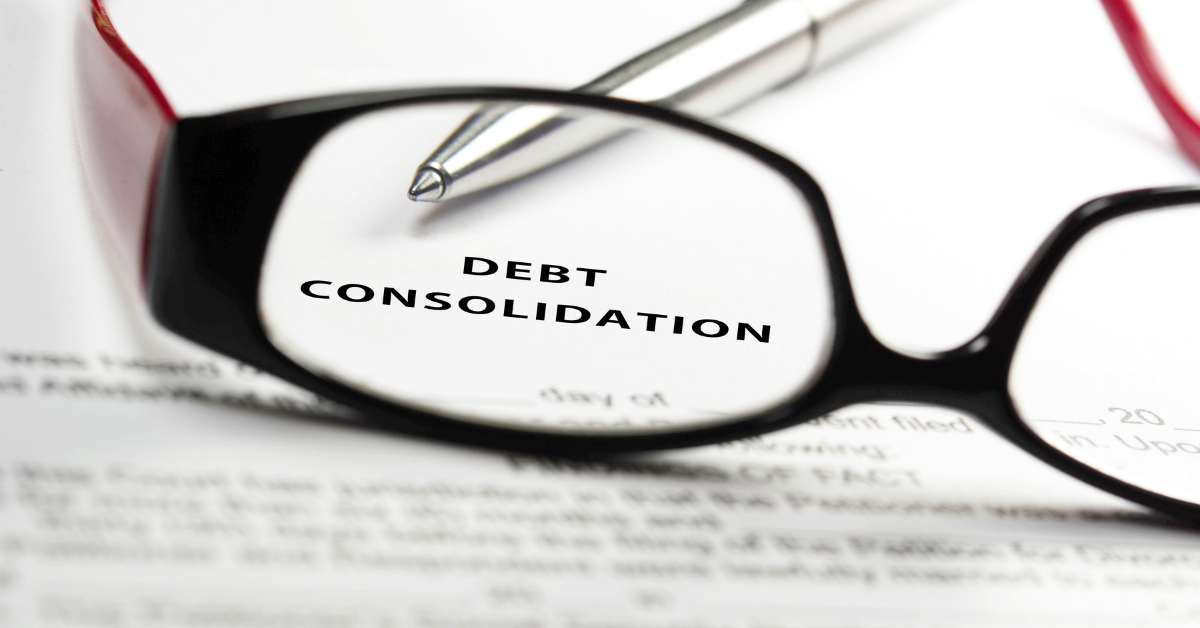
Qualifying for Chapter 13 Bankruptcy
Chapter 13 bankruptcy is designed for individuals with regular income who need a consolidated, structured repayment plan to manage their debts. To qualify for Chapter 13, your secured and unsecured debt must not exceed $2.75 million, and you must have a regular source of income and complete credit counseling within 180 days before filing.
Creating a Repayment Plan
After filing, you will work with your attorney to develop a repayment plan that will be submitted to the bankruptcy court for approval. On this plan, all of the debtor’s estimated disposable income (or property liquidation) must be committed to monthly payments over a 3 to 5-year period, with priority debts paid in full.
Court Approval and Meeting of Creditors
Your proposed repayment plan must be submitted to the bankruptcy court for approval. Like in Chapter 7, you will also be required to attend a meeting of creditors (above) where the trustee and your creditors can ask questions about your financial situation and proposed plan.
Making Payments and Discharge
Once your plan is approved, you will make regular payments to a court-appointed trustee, who will distribute the funds to your creditors according to the terms of your plan. Upon successful completion of your repayment plan, any remaining eligible debts will be discharged, giving you a fresh financial start.
Remember, bankruptcy does not have to permanently damage your credit score. By following the right recommendations and working with an experienced attorney, you can rebuild your credit and achieve a brighter financial future.
Florida Bankruptcy Exemptions: Protecting Your Assets

Homestead Exemption
One of the most significant bankruptcy exemptions in Florida is the homestead exemption, which protects an unlimited amount of equity in your primary residence under federal bankruptcy laws during bankruptcy filings. However, there are size limitations based on the location of the property. If your home is located within city limits, the exemption applies to up to half an acre of property. If your home is located outside city limits, the exemption applies to up to 160 acres of property.
Motor Vehicle Exemption
Florida’s motor vehicle exemption allows you to protect up to $1,000 in equity in your vehicle under the bankruptcy code. If you have a car loan, the exemption applies to the equity you have in the car, not the total value of the car. If your vehicle is paid off and worth less than $1,000, it is entirely exempt.
Personal Property and Wildcard Exemptions
Florida also provides limited protection for personal property, such as household goods, clothing, and electronics. The state allows for a $1,000 personal property exemption, which can be increased to $4,000 if you do not claim the homestead exemption. Additionally, Florida offers a wildcard exemption that allows you to protect an additional $4,000 in personal property if you do not use the homestead exemption.
Retirement Accounts and Other Income Exemptions
Retirement accounts, such as 401(k)s, IRAs, and pensions, are generally exempt from liquidation in a Florida Chapter 7 bankruptcy. Furthermore, certain types of income and insurance benefits, such as Social Security, disability, and veterans’ benefits, are also exempt from consideration in the means test and liquidation.
Understanding and claiming the appropriate exemptions is crucial in protecting your assets during the bankruptcy process. Working with an experienced bankruptcy attorney can help ensure you maximize these protections and achieve the best possible outcome.
Frequently Asked Questions About Personal Bankruptcy
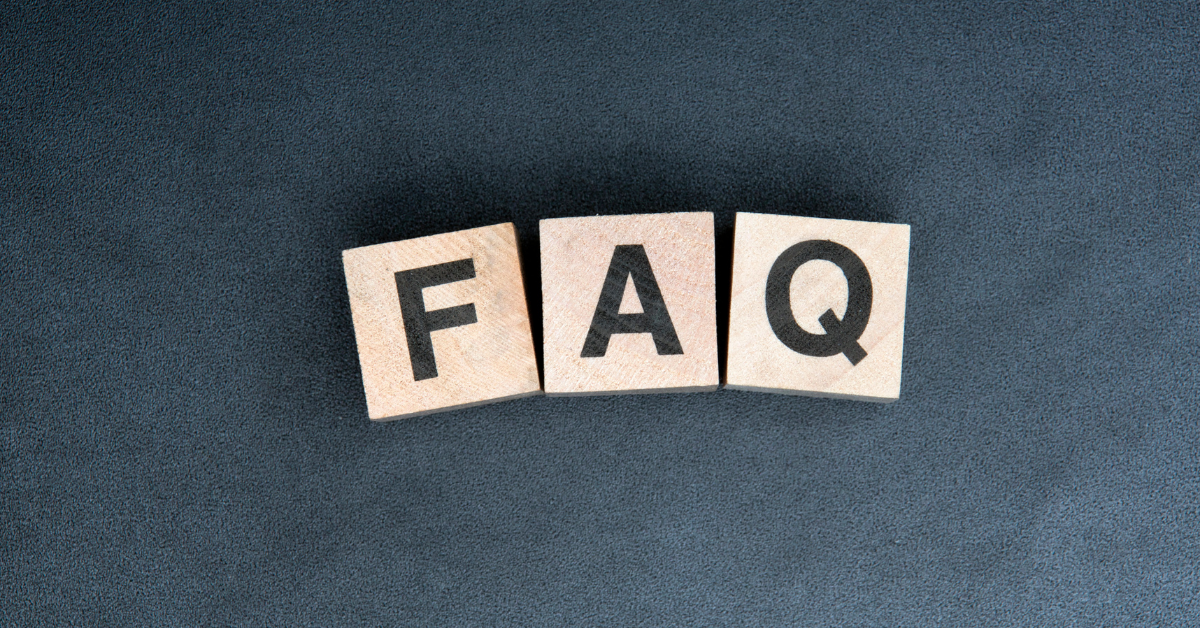
Navigating the complex world of personal bankruptcy can be overwhelming, and you may have many questions about the bankruptcy process. In this section, we will address some of the most frequently asked questions about personal bankruptcy to help you better understand your options and make an informed decision about your financial future.
What is the automatic stay?
The automatic stay is a legal provision that takes effect immediately when you declare bankruptcy. This crucial aspect of bankruptcy protection temporarily halts most actions by creditors to collect their debts, including lawsuits, garnishments, and foreclosures. This pause provides a breathing space for the debtor to reorganize their finances or work on a repayment plan under the supervision of the bankruptcy court.
What is the difference between Chapter 7 and Chapter 13 bankruptcy?
Chapter 7 bankruptcy, also known as liquidation bankruptcy, involves selling nonexempt assets to pay off creditors. Chapter 13 bankruptcy, on the other hand, is a repayment plan that allows individuals with regular income to keep their assets while repaying their debts over a period of 3 to 5 years.
Can I keep my home and car if I file for bankruptcy?
In Florida, the homestead exemption and motor vehicle exemption can protect your home and car, respectively, up to certain limits. However, you must continue to make payments on secured debts, such as your mortgage and car loan, to keep these assets.
How long does bankruptcy stay on my credit report?
A Chapter 7 bankruptcy remains on your credit report for ten years, while a Chapter 13 bankruptcy stays on your report for seven years. However, by following proper credit-rebuilding strategies, you can improve your credit score over time.
What debts are not dischargeable in bankruptcy?
Some debts are not dischargeable in bankruptcy, including most student loans, child support, alimony, and certain tax debts. It is essential to consult with an experienced bankruptcy attorney to understand which debts can and cannot be discharged in your specific situation.
Can I file for bankruptcy more than once?
Yes, you can file for bankruptcy more than once, but there are waiting periods between filings. For Chapter 7, you must wait eight years from a previous Chapter 7 filing or six years from a previous Chapter 13 filing. For Chapter 13, you must wait two years from a previous Chapter 13 filing or four years from a previous Chapter 7 filing.
How much does it cost to file for bankruptcy?
Filing fees for Chapter 7 bankruptcy are currently $338, while Chapter 13 filing fees are $313. Additional fees may apply for required credit counseling and debtor education courses.
Contact Us to Learn More About Personal Bankruptcy Options and Strategies
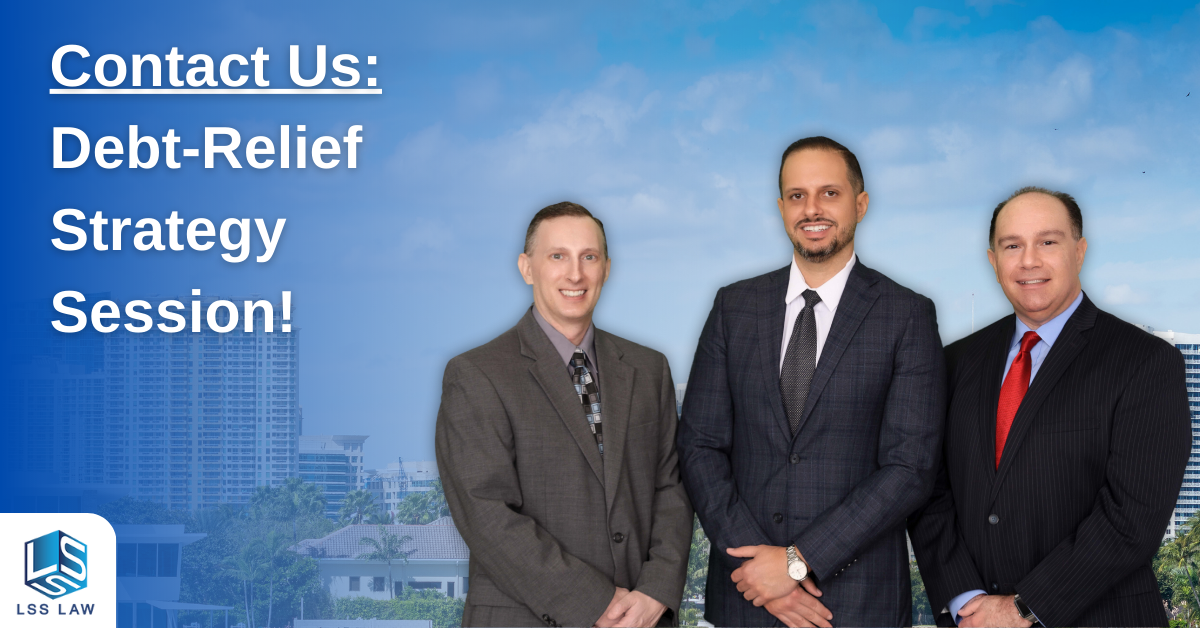
If you are struggling with debt and considering personal bankruptcy, LSS Law is here to help. Our dedicated team of experienced bankruptcy attorneys can guide you through the process and help you develop a strategy for a brighter financial future. Schedule a no-cost Bankruptcy Strategy Session at our Fort Lauderdale or Miami locations, or via Zoom, by contacting us at info@lss.law or visiting our website at https://lss.law/contact-us. Don’t let debt hold you back – take the first step towards financial freedom today.






